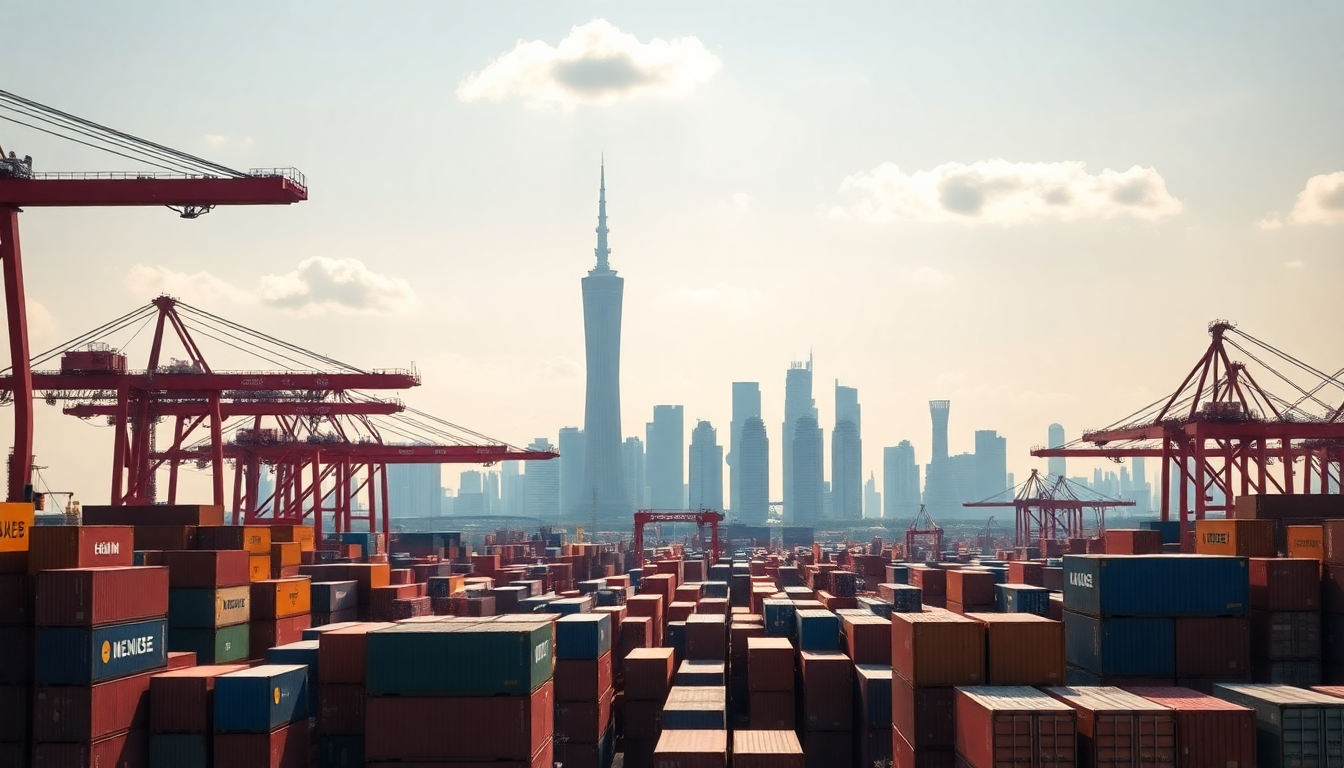Table of Contents
As the geopolitical landscape evolves, all eyes are on the upcoming trade negotiations between the United States and its various partners. Have you ever wondered how these discussions might impact global trade? Well, China is certainly taking note, issuing strong warnings to countries that might consider deals detrimental to its interests. With a keen focus on global supply chains, Beijing’s response to these developments could significantly reshape international trade dynamics.
China’s Position on US Trade Agreements
In recent statements, Chinese officials have voiced their concerns about potential trade agreements emerging from the US negotiations. They fear that countries in Europe and Southeast Asia might strike deals that either redirect supply chains away from China or cut down bilateral trade. This worry stems from the understanding that as nations draw nearer to the US, they might inadvertently sever long-standing economic ties with Beijing. So, what does this mean for everyone involved?
Liang Yan, an economics professor at Willamette University, captured this concern perfectly when he said, “The first important one is not to shift the supply chain.” The message is clear: if countries choose to pull back from Chinese manufacturing and trade, the fallout could be significant—not just for China, but for the global economy as a whole. The interconnectedness of these supply chains means that a shift in one area can create ripple effects felt worldwide. Are we prepared for that?
The Broader Impact of Tariff Negotiations
The recent actions taken by the Trump administration, particularly the sweeping global tariffs, have added another layer of complexity to this situation. Known as “Liberation Day” by officials, these tariffs aimed to recalibrate trade relationships but were temporarily suspended to foster dialogue. This pause underscores the delicate balance that exists in international trade, where negotiations can quickly shift the landscape. Can you imagine how quickly things can change?
For China, the stakes are incredibly high. The threat of economic isolation is very real, especially if key trading partners lean more toward US interests. As these negotiations unfold, how China responds will be vital. Whether through diplomatic channels or economic measures, we can expect Beijing to take steps to protect its interests and maintain its position as a global economic powerhouse. What strategies will they employ?
Looking Ahead: Potential Responses from Beijing
As the situation continues to develop, the world is watching closely for China’s next moves. If countries move forward with agreements that undermine Chinese interests, Beijing’s responses could range from diplomatic protests to more severe economic repercussions. The nature of these responses will likely depend on the specific circumstances and how threatened China feels. Are they prepared for a fight?
Beyond direct responses, China might also look to strengthen its trade partnerships and deepen ties with nations committed to its initiatives. By reinforcing these relationships, China could cushion the blow from any shifts in trade dynamics resulting from US negotiations. Ultimately, the interplay among these global players will be a defining feature of the international trade landscape in the years to come. So, how will this all play out?


